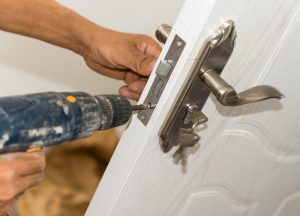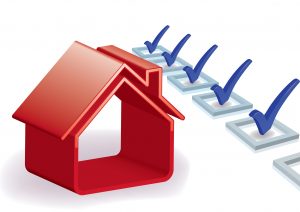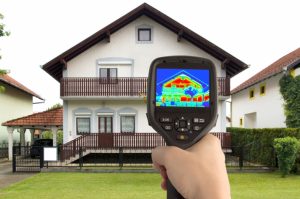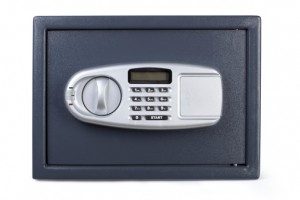From Milton to Cambridge/Kitchener-Waterloo (and all points in between), April kicks off the start of the busy moving season.
And if you’re moving from, say an apartment to a pre-owned or resale home for the very first time, make sure you follow these helpful security tips from Aim Lock & Safe.

Get your locks changed
1. Change the locks
Want to be certain that old keys won’t work in your new home?
Change ‘em.
If you aren’t interested in changing every individual lock in your new home, lock rekeying services can deliver the same result at a fraction of the time or cost.
Here’s how it works:
- The inside of the lock is reconfigured by an expert locksmith
- A brand new key is created to unlock it
- All old keys are rendered useless; they cannot open the rekeyed lock
Just because someone says they’ve given you all the keys doesn’t mean there aren’t any floating around.
And as much as you want to take someone’s word for it, you just never know.
Your best bet is to change the locks (or at least the keys which go in them).

Book a home inspection
2. Get the property inspected by a security expert
At first glance, your new home may appear safe and secure.
But an on-site security consultation will tell you for sure.
For example, do you know?
- Areas potential burglars can hide until the house is empty
- The strength of vital structures like door frames and window frames
- Lines of sight where intruders can see into your home
Things like inadequate lock hardware and door integrity are easy to spot, identify and repair.
It’s the smaller, less visible items which can compromise your new home’s security.
Your best bet is to have a security expert come visit your house and thoroughly inspect your property and make recommendations for you.
3. Reassess the exterior lighting of the home
Let’s assume that in your new home; you don’t plan on spending much time in the backyard (because, say, you want to install some new landscaping).
Because your backyard won’t be used, you may think it’s not necessary to invest in outdoor lighting for it.
Two things to consider, though:
- Criminals prefer to operate in dark, shadowy, poorly lit areas
- 88% of burglars will not attempt to break into a well-lit house (source: Reolink)
The more well lit your home is, the less of a target it’ll be for prospective criminals.
Another thing to consider is that your new house may have areas you aren’t accustomed to, such as a side door walkway or a detached garage.
So your best bet is make sure you give those areas (well, every area, actually) the amount of light they need.

Check the heating & electrical systems
4. Check the heating and electrical systems
Unfortunately, many house fires are caused by faulty electrical systems or bad wiring.
Scheduling an electrician to come and check the electrical features in your home is extremely important (doubly so if you’re moving into an older home).
As for the heating system, you’ll want to make sure it:
- Works properly
- Responds to control
- Has no gas or oil leaks
- Does not exhibit fumes
Again, with older homes, the heating system may not be up to par.
Your best bet is to have an HVAC specialist visit your new home and provide a thorough, top-to-bottom inspection for you.

Get a home safe
5. Invest in a safe
The bigger and more luxurious the home, the more of a target it is to would-be thieves.
After all, they think that more valuable stuff is inside.
Whether or not that’s true, a home safe can protect the important items you do have, such as:
- Home ownership documents
- Passports
- Extra cash
- Jewelry
For extra protection, you can also invest in a fireproof safe.
Perhaps in your old home, you didn’t need a safe. Maybe you live in an apartment building with a solid access control system in place.
But now that you’re in a home of your own, you’ll need to take on extra security responsibilities.
Your best bet, then, is to research how safes are rated and then select a home safe that’s right for you.
6. Really get to know the neighbourhood
Your new house is part of a community.
And now, so are you.
First of all, get to know your neighbours. Introduce yourself and tell them you’re new to the area. Chances are they’ll want to help you settle right in.
And once you are settled, take a long walk around the neighbourhood and take note of things like:
- Walking paths which connect one neighbourhood to another
- If the parks nearby have a heavy forested area
- Crosswalks and other pedestrian-friendly areas
- Any burnt out streetlights
Why look for these things in particular?
Because they can serve as out-of-the-way hiding spots for bad guys who want to break into your home.
So your best bet is to always know where they are.
Need help securing your new home? Contact us
First of all, congratulations on purchasing your new home!
You must be excited to move in and make it truly yours.
For extra piece of mind, though, you’ll want to secure it as much as possible.
And that’s where we come in.
To start, you can:







